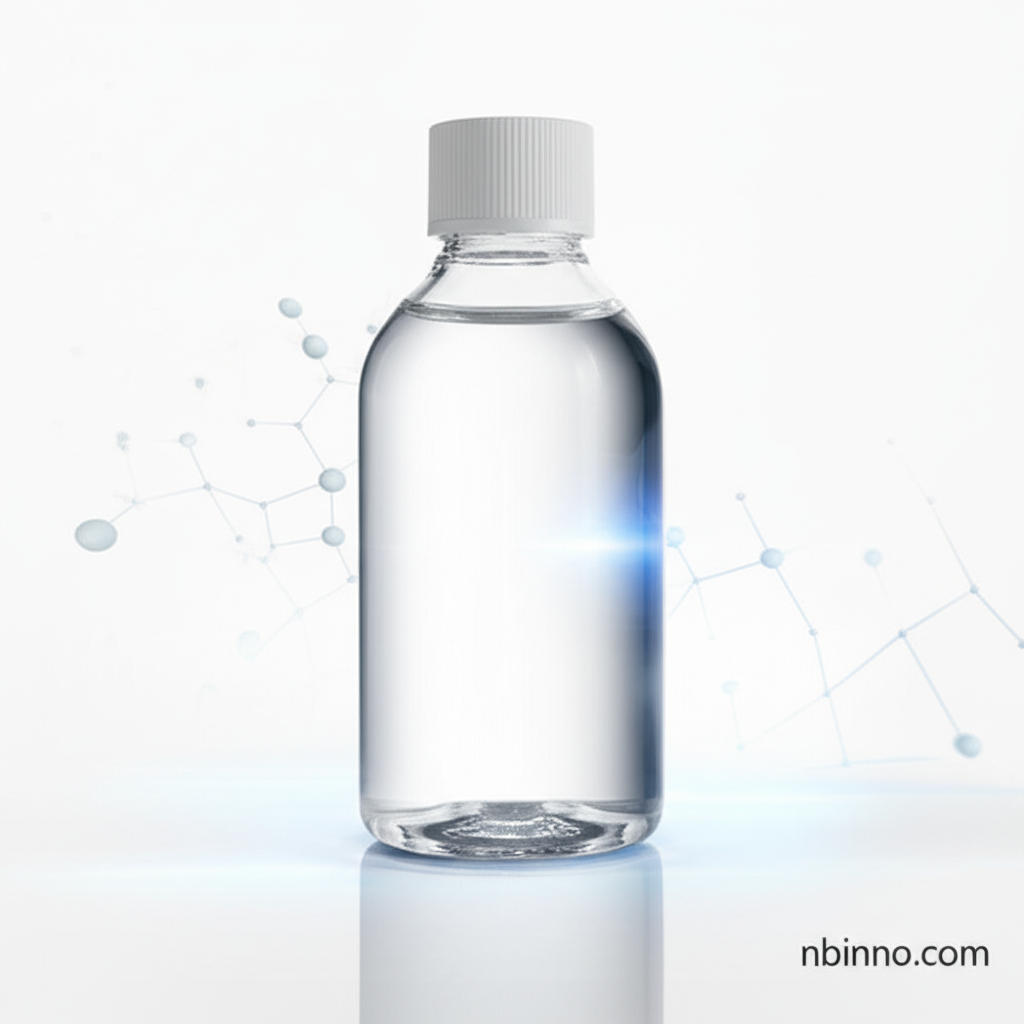Glycerol (CAS 56-81-5): A Versatile Triol for Diverse Applications
Discover the extensive uses of Glycerol, a vital compound in food, pharmaceuticals, cosmetics, and industry.
Get a Quote & SampleProduct Core Value

Glycerol
Glycerol, also known as glycerin, is a simple polyol compound with the chemical formula C3H8O3. It is a colorless, odorless, sweet-tasting, and viscous liquid at ambient temperatures. Its three hydroxyl groups make it highly soluble in water and hygroscopic, enabling it to attract and retain moisture. This versatility makes glycerol indispensable across a wide spectrum of industries, from enhancing food textures and preserving pharmaceuticals to providing lubrication and acting as a chemical intermediate.
- Exploit glycerol's properties as a humectant in cosmetics for superior skin hydration.
- Understand the role of glycerol as a sweetener and solvent in the food industry.
- Learn about glycerol's applications as a pharmaceutical excipient and therapeutic agent.
- Investigate glycerol as a chemical intermediate for producing various derivatives.
Key Advantages
Exceptional Humectancy
Leverage glycerol's ability to draw moisture from the air, making it an excellent humectant for skin and food products, ensuring lasting hydration and preventing dryness.
Broad Industrial Utility
Utilize glycerol as a crucial chemical intermediate for synthesizing diverse compounds, or as an effective antifreeze and lubricant in various industrial settings.
Food Grade Sweetener and Solvent
Benefit from glycerol's sweet taste and solvent properties, enhancing the flavor, texture, and shelf-life of food and beverage products.
Key Applications
Pharmaceutical Formulations
Glycerol serves as a vital excipient, acting as a solvent, humectant, and viscosity-increasing agent in oral, topical, and parenteral drug preparations. Its use as a humectant is critical for maintaining the stability of many pharmaceutical products.
Cosmetics and Personal Care
In the cosmetics industry, glycerol is a popular ingredient for its moisturizing and emollient properties, found in lotions, creams, soaps, and toothpaste to keep skin and hair hydrated.
Food and Beverage Industry
As a food additive (E422), glycerol functions as a humectant, solvent, sweetener, and thickener, improving the texture and shelf-life of products like baked goods, confectionery, and beverages.
Industrial Manufacturing
Glycerol is a key chemical intermediate used in the production of alkyd resins, explosives, and polyethers, and also finds application as an antifreeze and lubricant.
